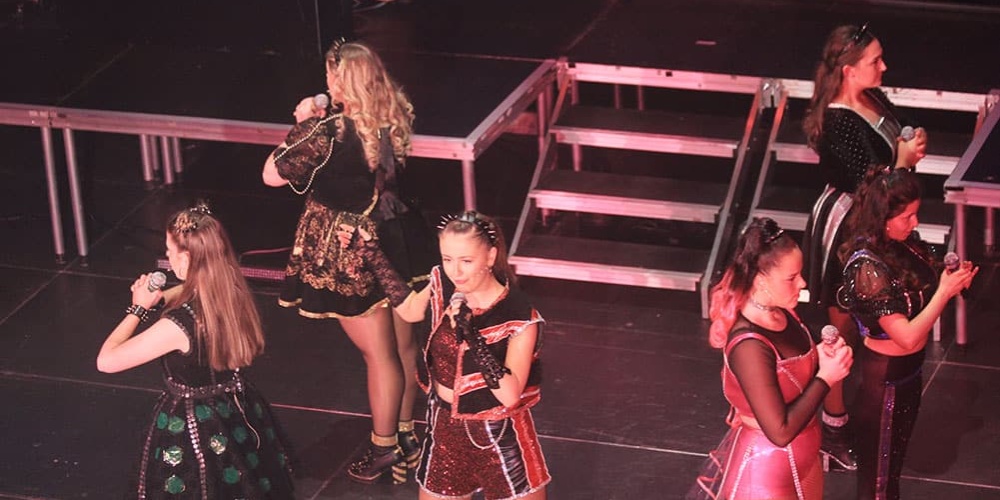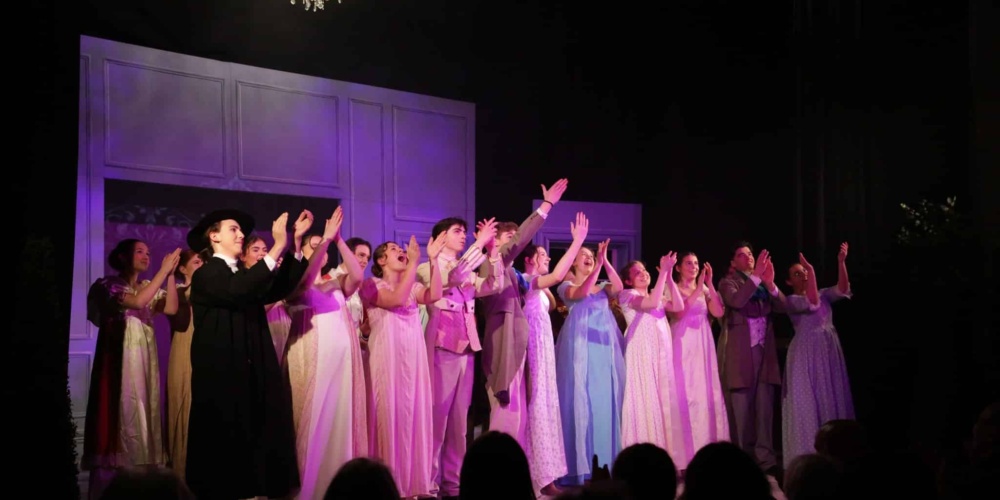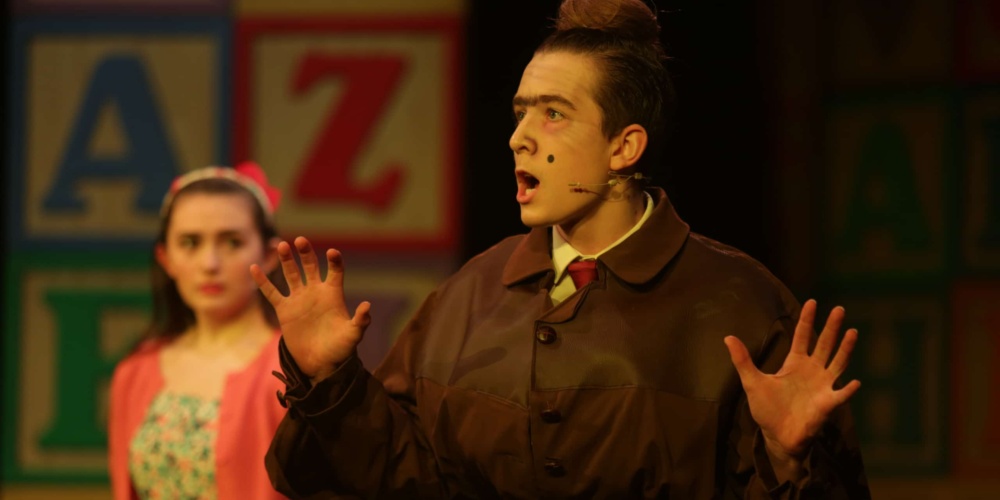Drama & Theatre A Level Exam Information
We currently follow the OCR Drama & Theatre linear specification. This is assessed through 60% Non-Exam Assessment and 40% Written Examination. Results are consistently excellent. The subject combines very well with other Arts and Humanities courses and develops essay writing and research abilities, as well as performance, theatre design and technical knowledge and skills.
Course Content
OCR’s A Level in Drama & Theatre has been designed to be a practical, engaging and creative specification. It provides students with opportunities to interrogate drama and the work of others, to explore a range of drama as a practical art form, and to work independently to create their own drama performances making informed artistic choices. The main purpose of this qualification is to allow students to study drama and theatre in an academic setting, interrogating this art form and applying their knowledge and understanding to the process of creating and developing drama and theatre and to their own performance work. It also prepares students for the further study of Drama or Performing Arts courses in Higher Education as well as developing transferable skills desired by all sectors of the industry. The course creates independent learners, critical thinkers and effective decision makers – all personal attributes that can make them stand out as they progress through their education and into employment.

OCR’s A Level in Drama & Theatre will encourage students to:
- develop and apply an informed, analytical framework for making, performing, interpreting and understanding drama and theatre
- understand the place of relevant theoretical research in informing the processes and practices involved in creating theatre and the place of practical exploration in informing theoretical knowledge of drama and theatre
- develop an understanding and appreciation of how the social, cultural and historical contexts of performance texts have influenced the development of drama and theatre
- understand the practices used in twenty-first century theatre making
- experience a range of opportunities to create theatre, both published text-based and devised work
- participate as a theatre maker and as an audience member in live theatre
- understand and experience the collaborative relationship between various roles within theatre
- develop and demonstrate a range of theatre making skills
- develop the creativity and independence to become effective theatre makers
- adopt safe working practices as a theatre maker
- analyse and evaluate their own work and the work of others (may include their own, their peers, amateur and/or professional works).

Course Structure
There are four components that make up the A Level:
- Practitioners in Practice*
- Creating, Devising and Performing Original Theatre (Research Report/ Explorative Portfolio/ Devised Performance)
- Internally marked/ Externally moderated
- 120 marks 40%
- Exploring & Performing Texts*
- Performing Live Theatre (Group Performance of Script)
- Visiting external examination
- 60 marks 20%
- Analysing Performance
- Explore practically two performance texts on a chosen theme
- Analyse and evaluate a live theatre performance
- Written Examination
- 60 marks 20%
- Deconstructing Texts for Performance
- Interpret and explore practically a performance text considering how to create, develop and direct a performance for an audience.
- Written Examination
- 60 marks 20%
* = NEA (Non-exam assessment)
All components will be assessed in the Upper Sixth. The Devised and Scripted performances will take place in March.
The Practitioners in Practice component will be assessed in the Summer Term of the Lower Sixth Year. The Scripted performances will take place in March.
Theatre visits will take place in the evenings throughout the two years to broaden knowledge and prepare for the Analysing Performance exam
Exam Board: OCR Drama & Theatre



